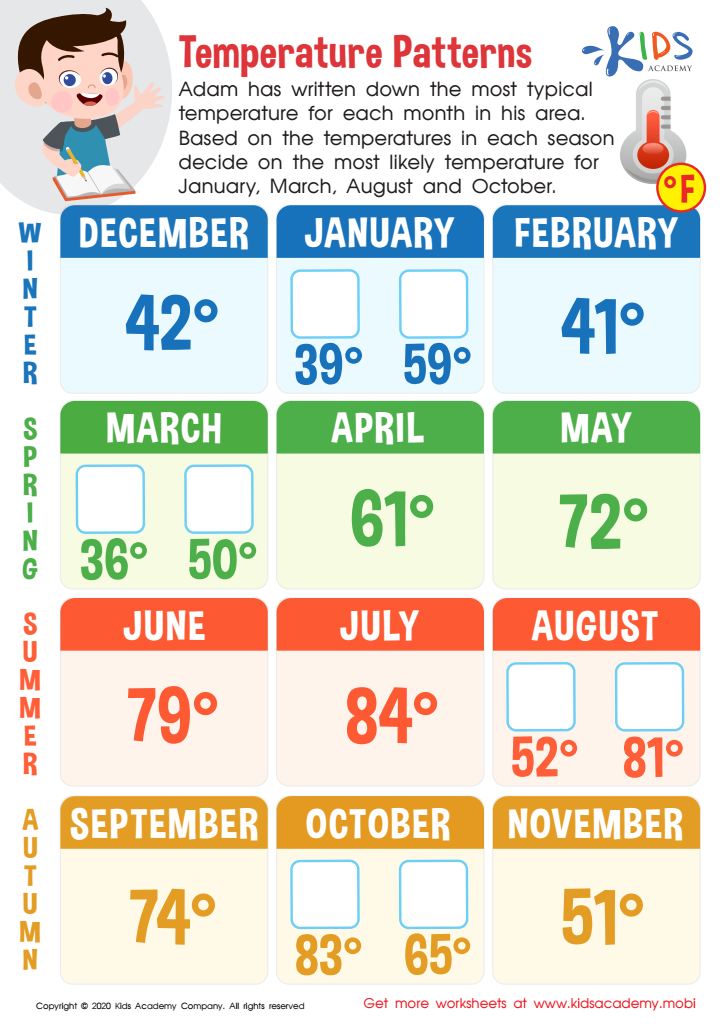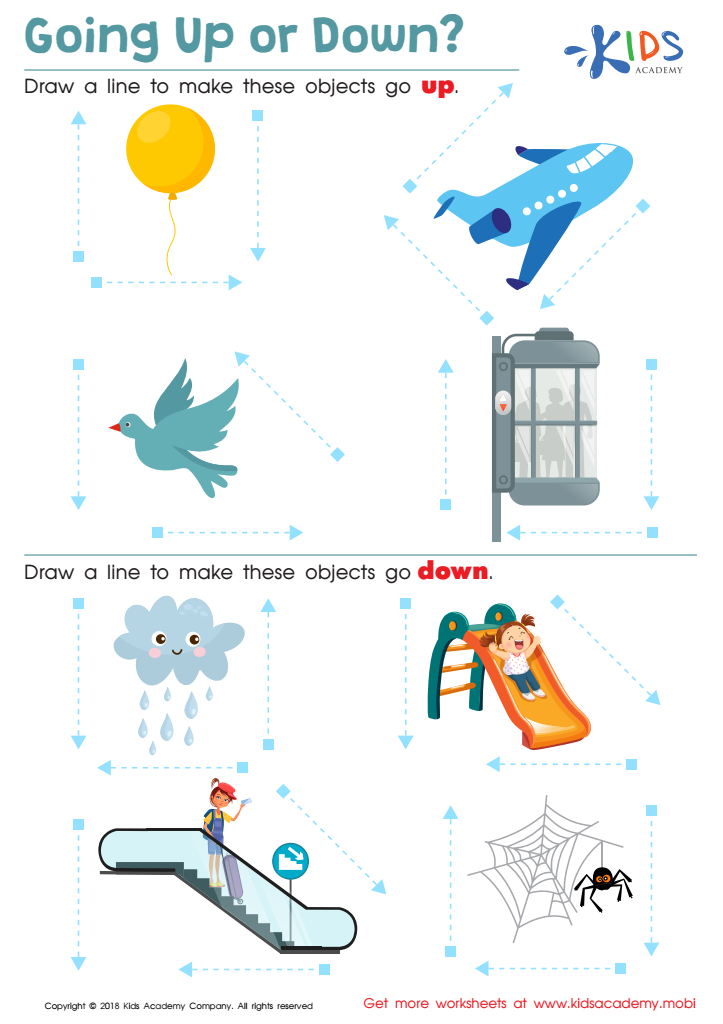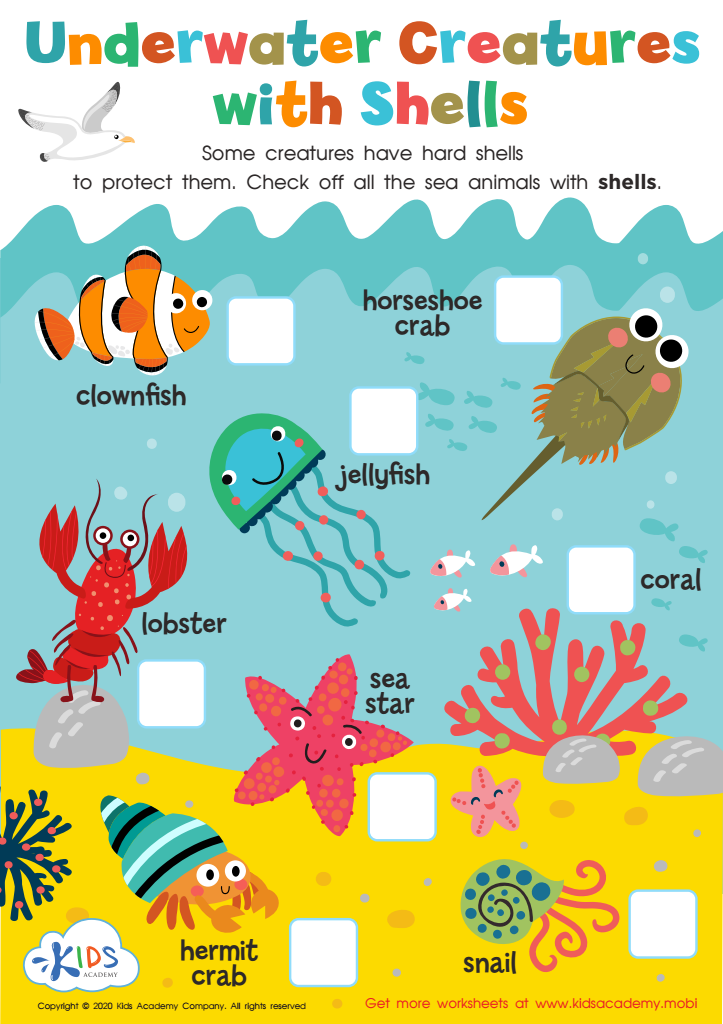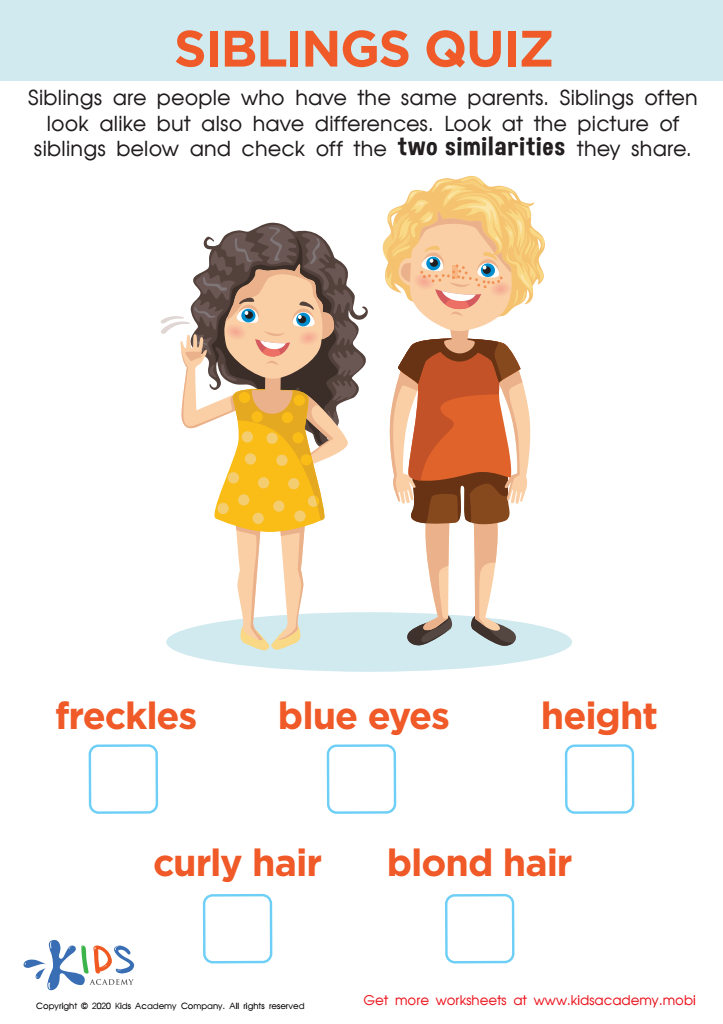Basic Math Skills Science Worksheets for Ages 5-9
5 filtered results
-
From - To
Discover engaging Basic Math Skills Science Worksheets designed for children ages 5-9! Our interactive worksheets offer a fun and educational approach to mastering essential math concepts such as counting, addition, subtraction, and number recognition. Perfect for classroom activities or at-home learning, these resources integrate science themes that spark curiosity and promote critical thinking. Each worksheet is tailored to foster problem-solving skills while keeping young learners motivated and excited about math. Whether you’re a teacher or a parent, our printable worksheets provide the perfect foundation to support your child's academic growth, making basic math both enjoyable and effective!


Temperature Patterns Worksheet


Going up or Down? Worksheet


Alien Worksheet


Underwater Creatures with Shells Worksheet


Siblings Quiz Worksheet
Basic math skills are foundational for young learners, particularly in the ages of 5-9, when children's cognitive abilities and understanding of the world are rapidly developing. Parents and teachers should care about integrating basic math skills with science for several reasons.
First, math is the language of science; understanding basic mathematical concepts helps children comprehend scientific principles. Integration promotes a deeper understanding of both subjects, encouraging critical thinking and fostering problem-solving skills. For instance, measuring ingredients in a science experiment can teach children addition and subtraction while engaging them in hands-on learning.
Second, early mastery of math enhances overall academic performance. Research shows that children who develop strong math skills early tend to succeed in subsequent grade levels in all subjects, not just math or science.
Lastly, early exposure to math within scientific contexts can spark interest in STEM (Science, Technology, Engineering, and Mathematics) fields, vital for today's job market. By fostering these skills at an early age, parents and teachers can help build confidence and enthusiasm in lifelong learning. It equips children with essential skills they will rely on in everyday life, laying a strong foundation for their future education and career paths.
 Assign to My Students
Assign to My Students





.jpg)













